Delve into the timeless realm of psychology with our selection of the 50 best-ever books on the subject. These evergreen classics offer profound insights into the complexities of the human mind, providing readers with enduring perspectives that withstand the test of time.
From foundational works that shaped the discipline to contemporary masterpieces, each book on this curated list illuminates different facets of the human experience.
Whether you are a psychology enthusiast, student, or simply curious about the workings of the mind, these enduring volumes promise a journey of intellectual enrichment and self-discovery. Embrace the wisdom and transformative power embedded in these literary treasures as you explore the fascinating landscapes of psychology.
Man’s Search for Meaning
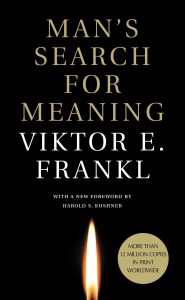
Man’s Search for Meaning (1946) by Viktor E. Frankl is a profound exploration of human resilience and purpose. Drawing from his experiences in Auschwitz, Frankl introduces logotherapy, emphasizing the pursuit of meaning as central to human existence. This timeless work inspires reflection on finding purpose even in the midst of suffering.
Thinking, Fast and Slow
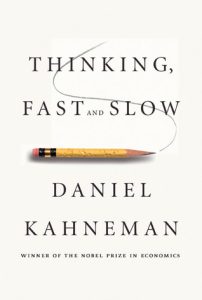
Thinking, Fast and Slow (2011) by Daniel Kahneman delves into cognitive biases and dual thought processes, System 1 (intuitive) and System 2 (analytical). Kahneman, a Nobel laureate, explores decision-making pitfalls and the intricacies of human judgment. This groundbreaking work reshapes our understanding of thinking, offering insights into the complexities of the mind.
The Interpretation of Dreams
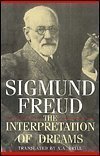
The Interpretation of Dreams (1899) by Sigmund Freud is a foundational text in psychoanalysis. Freud explores the unconscious mind, dream symbolism, and wish fulfillment. This seminal work unveils Freud’s theories on the significance of dreams in understanding the hidden recesses of the psyche, shaping modern psychology.
Influence: The Psychology of Persuasion
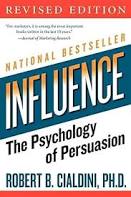
Influence: The Psychology of Persuasion (1984) by Robert B. Cialdini dissects the psychology behind influence and persuasion. Cialdini identifies six key principles—reciprocity, commitment, social proof, authority, liking, and scarcity—revealing the intricate ways people are swayed. This influential book remains a cornerstone in understanding the dynamics of persuasion in various aspects of life.
The Power of Habit

The Power of Habit (2012) by Charles Duhigg explores the science of habit formation and transformation. Through compelling narratives and scientific insights, Duhigg unravels the neurological patterns that shape our behaviors. This transformative book offers practical strategies to harness the power of habits for personal and societal change.
The Psychology of Intelligence
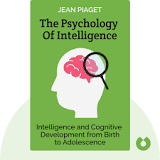
The Psychology of Intelligence (1947) by Jean Piaget is a foundational work in developmental psychology. Piaget delineates stages of cognitive development in children, emphasizing how intelligence evolves through assimilation and accommodation. This seminal text revolutionized our understanding of how individuals construct knowledge and navigate their intellectual growth.
Flow: The Psychology of Optimal Experience
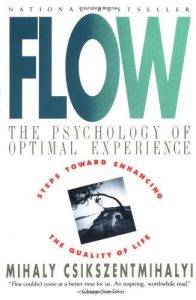
Flow: The Psychology of Optimal Experience (1990) by Mihaly Csikszentmihalyi explores the concept of ‘flow,’ a state of deep engagement and satisfaction. Csikszentmihalyi investigates how individuals achieve peak performance and joy by immersing themselves in activities that challenge and fulfill their abilities. This influential work delves into the psychology of optimal human experience.
Emotional Intelligence
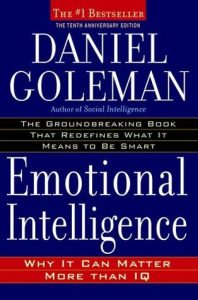
Emotional Intelligence (1995) by Daniel Goleman examines the significance of emotional intelligence in personal and professional success. Goleman delves into the impact of emotional awareness, self-regulation, empathy, and social skills. This transformative book illuminates the critical role emotions play in shaping human behavior, relationships, and achievement.
The Tipping Point
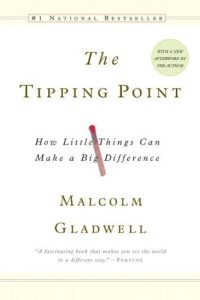
The Tipping Point (2000) by Malcolm Gladwell uncovers the dynamics behind societal shifts and contagious phenomena. Gladwell identifies the tipping points—small changes leading to disproportionate outcomes—that drive trends. This thought-provoking exploration of social epidemics reshapes perspectives on influence, emphasizing the pivotal moments that transform ideas into widespread phenomena.
The Social Animal
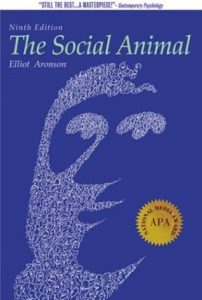
The Social Animal (1972) by Elliot Aronson is a seminal text in social psychology. Combining research and storytelling, Aronson explores the complexities of human behavior, prejudice, and conformity. This engaging book delves into the interplay of individual and societal influences, offering profound insights into the intricacies of social interactions and psychology.
Quiet: The Power of Introverts in a World That Can’t Stop Talking
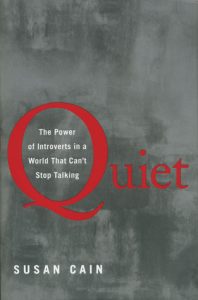
Quiet: The Power of Introverts in a World That Can’t Stop Talking (2012) by Susan Cain celebrates introversion. Cain explores the strengths and contributions of introverts, challenging societal biases favoring extroversion. This empowering book advocates for a more inclusive understanding of personality, reshaping perceptions of quiet individuals in a dynamic world.
Mindsight
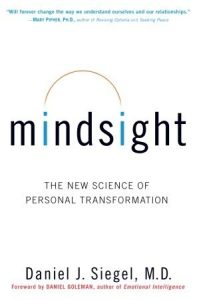
Mindsight (2010) by Daniel J. Siegel is a thttps://amzn.to/48upn3cransformative exploration of the mind’s capacity to shape our lives. Siegel introduces the concept of mindsight—developing insight into our own and others’ minds. Through neuroscience and personal stories, he illuminates how cultivating mindsight enhances well-being, empathy, and emotional resilience.
The Road Less Traveled
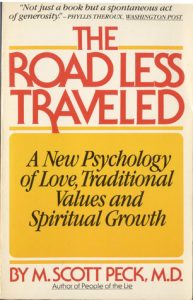
The Road Less Traveled (1978) by M. Scott Peck is a timeless exploration of spiritual growth and self-discipline. Peck combines psychology and spirituality to guide readers toward a more fulfilling life. With wisdom and compassion, he addresses the challenges of love, mental health, and the pursuit of a meaningful existence.
Stumbling on Happiness
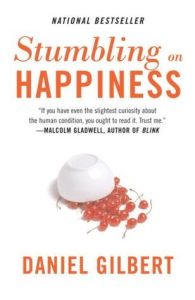
Stumbling on Happiness (2006) by Daniel Gilbert delves into the complexities of human happiness. Gilbert, a Harvard psychologist, explores the quirks of perception and decision-making, revealing how our understanding of happiness often leads to unexpected outcomes. This insightful book challenges conventional notions, offering a humorous and thought-provoking exploration of the human psyche.
The Anatomy of Violence
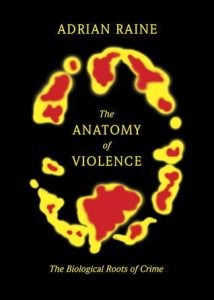
The Anatomy of Violence (2013) by Adrian Raine investigates the biological roots of criminal behavior. Raine explores neuroscience and genetics, challenging traditional perspectives on crime causation. With a multidisciplinary approach, he offers insights into the complex interplay between biology, environment, and criminal tendencies, reshaping our understanding of violence.
The Developing Mind
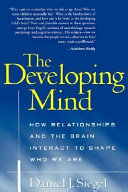
The Developing Mind (1999) by Daniel J. Siegel is a groundbreaking work in developmental psychology. Siegel integrates neuroscience and attachment theory to illuminate how early experiences shape brain development. This accessible and comprehensive book explores the essential connections between the mind, brain, and relationships, influencing therapeutic approaches and parenting strategies.
The Hiding Place
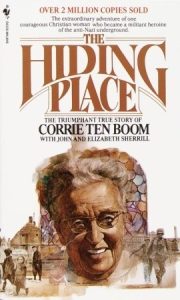
The Hiding Place (1971) by Corrie ten Boom recounts her family’s courage during the Holocaust. As Dutch Christians, they sheltered Jews in their home. Imprisoned in a concentration camp, Corrie’s resilience and faith shine through. This inspiring memoir reflects on forgiveness and the enduring strength found in hope and compassion.
Predictably Irrational
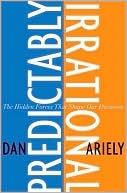
Predictably Irrational (2008) by Dan Ariely explores the irrationalities that govern human decision-making. Through engaging experiments and anecdotes, Ariely reveals systematic biases and cognitive quirks that influence our choices. This insightful book challenges the notion of rational behavior, offering a compelling examination of the hidden forces guiding our everyday decisions.
The Psychopath Test
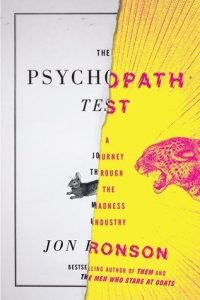
The Psychopath Test (2011) by Jon Ronson delves into the world of psychiatry and explores the concept of psychopathy. Ronson investigates the implications of diagnosing individuals as psychopaths, revealing the complex interplay between mental health, morality, and societal norms. This thought-provoking book combines humor with profound reflections on human behavior.
The 48 Laws of Power
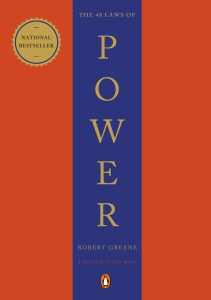
The 48 Laws of Power (1998) by Robert Greene explores timeless principles of power dynamics. Drawing from historical examples, Greene offers strategic insights on attaining and maintaining power. This controversial and compelling book exposes the nuances of influence, making it a guide for navigating complex social and professional landscapes.
The Lucifer Effect
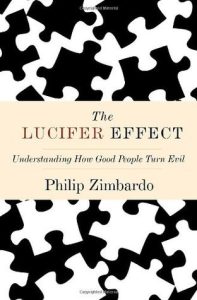
The Lucifer Effect (2007) by Philip Zimbardo investigates the psychology of evil using the Stanford Prison Experiment. Zimbardo explores how situational factors can lead ordinary individuals to commit atrocities. This eye-opening book delves into the dark recesses of human behavior, offering insights into the potential for cruelty within us all.
Mindset: The New Psychology of Success
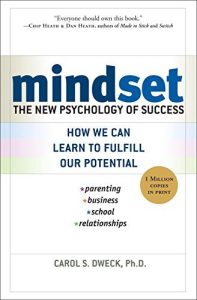
Mindset: The New Psychology of Success (2006) by Carol S. Dweck explores the power of mindset in shaping achievement. Dweck introduces the concepts of fixed and growth mindsets, illustrating how one’s beliefs about abilities profoundly impact success. This influential work encourages a transformative perspective on learning, resilience, and personal development.
Maps of Meaning
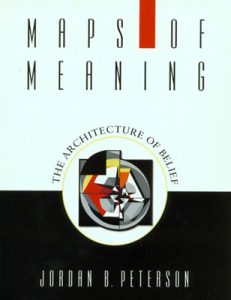
Maps of Meaning (1999) by Jordan B. Peterson is a profound exploration of mythology, psychology, and the nature of meaning. Peterson delves into the archetypal patterns that shape human experience, offering a multidisciplinary perspective. This complex yet enlightening work challenges readers to confront the existential questions that define the human condition.
The Gift of Fear
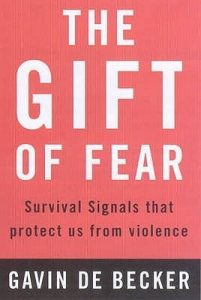
The Gift of Fear (1997) by Gavin de Becker unravels the art of recognizing and trusting intuition to enhance personal safety. De Becker, a security expert, illuminates the innate survival instincts that guide us. This empowering book advocates for listening to our instincts as a crucial tool in navigating potential dangers and threats.
Why We Sleep
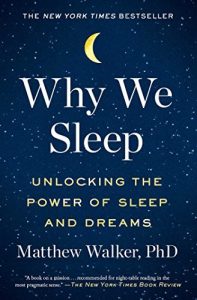
Why We Sleep (2017) by Matthew Walker delves into the science of sleep and its profound impact on health and well-being. Walker explores the crucial role of sleep in memory, learning, and overall physical and mental health. This informative book advocates for prioritizing quality sleep as a key element of a healthy lifestyle.
The Art of Happiness
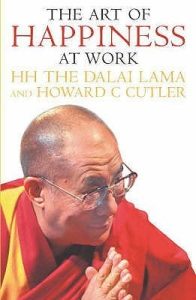
The Art of Happiness (1998) by the Dalai Lama XIV and Howard Cutler explores the convergence of Eastern philosophy and Western psychology to illuminate the path to genuine happiness. Through insightful discussions, the book offers practical wisdom, emphasizing compassion and inner transformation as essential components of a fulfilling and joyful life.
The Female Brain
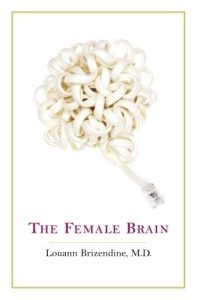
The Female Brain (2006) by Louann Brizendine explores the neurological underpinnings of female behavior. Drawing on scientific research, Brizendine delves into the hormonal and brain changes that shape women’s emotions, relationships, and decision-making. This insightful book offers a comprehensive understanding of the unique neurological aspects of the female brain.
Raising an Emotionally Intelligent Child
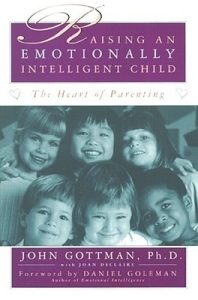
Raising an Emotionally Intelligent Child (1997) by John Gottman guides parents in nurturing their child’s emotional intelligence. Gottman, a renowned psychologist, offers practical strategies for fostering empathy, resilience, and healthy relationships. This influential book empowers parents to navigate the emotional landscape of childhood, fostering lasting emotional well-being.
The Art of Thinking Clearly
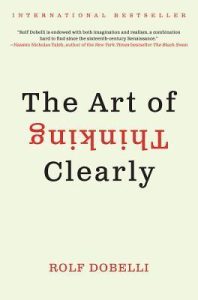
The Art of Thinking Clearly (2011) by Rolf Dobelli dissects common cognitive biases and logical fallacies that cloud decision-making. Through concise insights, Dobelli exposes mental pitfalls that impede clear thinking. This enlightening book provides tools for cultivating a more rational approach to decision-making, essential for navigating life’s complexities.
Theories of Personality
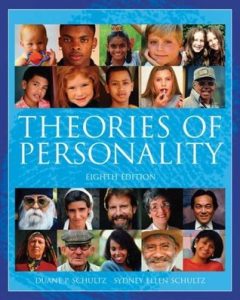
Theories of Personality by Duane P. Schultz and Sydney Ellen Schultz is a comprehensive exploration of psychological theories on personality development. This authoritative text covers major perspectives, from psychoanalytic to humanistic. Engagingly written, it serves as a valuable resource for understanding the diverse frameworks shaping our understanding of human personality.
The Red Queen
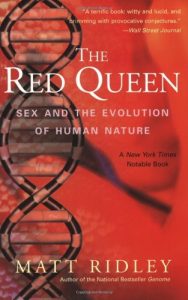
The Red Queen (1994) by Matt Ridley explores evolutionary dynamics and the co-evolutionary arms race between species. Ridley, a science writer, uses the metaphor of the Red Queen from Lewis Carroll’s “Through the Looking-Glass” to illustrate the perpetual struggle for survival and reproduction in the natural world. This engaging book unveils intricate biological adaptations.
The Wisdom of Psychopaths
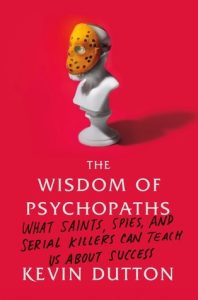
The Wisdom of Psychopaths (2012) by Kevin Dutton explores the traits of psychopathy and their potential benefits. Dutton, a psychologist, delves into the mindset of individuals with psychopathic tendencies, offering insights into their fearlessness and resilience. This thought-provoking book challenges perceptions of psychopathy, highlighting the complex interplay of traits in human behavior.
The Art of Learning
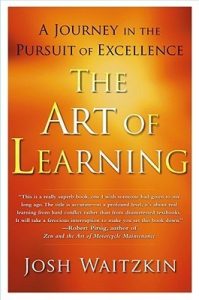
The Art of Learning (2007) by Josh Waitzkin chronicles his journey from chess prodigy to martial arts champion. Waitzkin, reflecting on his experiences, reveals principles for mastering skills, emphasizing adaptability, resilience, and a growth mindset. This insightful book offers valuable insights into the process of continuous learning and personal development.
The Better Angels of Our Nature
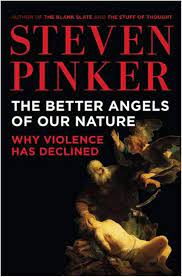
The Better Angels of Our Nature (2011) by Steven Pinker challenges the perception of increasing violence in human history. Through extensive historical analysis, Pinker argues that humanity has become less prone to violence over time. This thought-provoking book explores the forces contributing to this decline, offering an optimistic perspective on human progress.
The Brain That Changes Itself
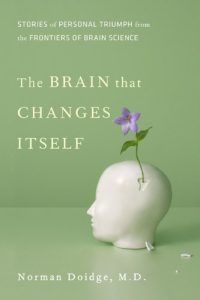
The Brain That Changes Itself (2007) by Norman Doidge explores the neuroplasticity of the brain, challenging traditional views. Through compelling case studies, Doidge unveils the brain’s remarkable ability to rewire itself. This groundbreaking book offers insights into rehabilitation, learning, and the potential for transformative changes in the brain, reshaping our understanding of cognition.
The Six Pillars of Self-Esteem
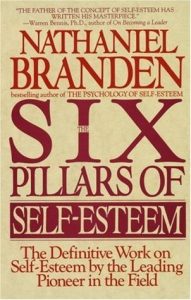
The Six Pillars of Self-Esteem (1994) by Nathaniel Branden outlines fundamental principles for building and maintaining healthy self-esteem. Branden explores themes such as self-acceptance, responsibility, and assertiveness. This empowering book offers practical guidance to cultivate a positive self-image and navigate personal growth with confidence and authenticity.
Waking Up
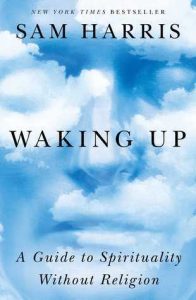
Waking Up (2014) by Sam Harris delves into the nature of consciousness and the practice of mindfulness without religious dogma. Harris explores the intersection of spirituality and neuroscience, offering a secular perspective on meditation and self-discovery. This insightful book invites readers to explore the profound dimensions of human consciousness.
The Highly Sensitive Person
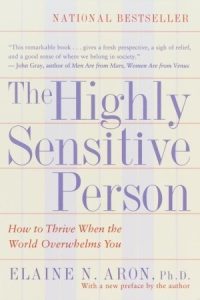
The Highly Sensitive Person (1996) by Elaine N. Aron explores the trait of sensory processing sensitivity. Aron sheds light on the challenges and strengths of highly sensitive individuals, emphasizing their deep processing of stimuli. This pioneering book offers insights into embracing sensitivity and navigating a world tailored to different sensory needs.
The 5 Second Rule
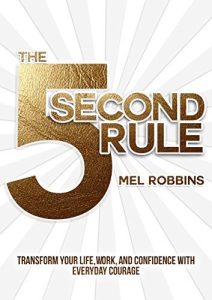
The 5 Second Rule (2017) by Mel Robbins introduces a transformative method to overcome hesitation and ignite positive change. Robbins shares a simple yet powerful technique—counting down from five—to interrupt self-doubt and spur action. This engaging book inspires readers to break through barriers, make decisions, and pursue their goals with newfound confidence.
The Nurture Assumption
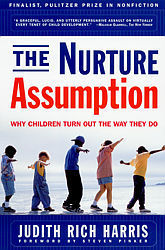
The Nurture Assumption (1998) by Judith Rich Harris challenges traditional views on parenting’s impact on child development. Harris argues that genetics and peer influence play more significant roles. This provocative book contends that parental influence is overemphasized, sparking debates in psychology. Harris urges a reconsideration of the factors shaping children’s personalities.
The Drunkard’s Walk
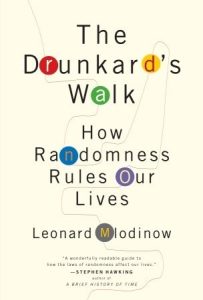
The Drunkard’s Walk (2008) by Leonard Mlodinow explores randomness and probability in everyday life. Mlodinow demystifies chance, examining how randomness shapes events, decisions, and outcomes. With clarity and humor, he navigates the unpredictable nature of reality, offering insights into the often misunderstood world of probability and statistical thinking.
The Dance of Connection
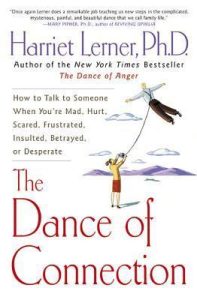
The Dance of Connection (2001) by Harriet Lerner explores the dynamics of human relationships. Drawing from psychology and personal stories, Lerner offers guidance on communication, conflict resolution, and fostering healthier connections. This insightful book empowers readers to navigate the intricate dance of relating to others with empathy, assertiveness, and authenticity.
The Anatomy of Peace
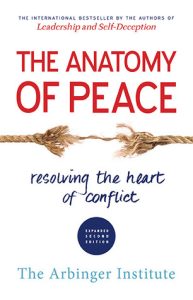
The Anatomy of Peace by The Arbinger Institute delves into the transformative power of shifting one’s mindset to achieve lasting peace. Drawing on a narrative approach, the book explores the profound impact of attitudes on personal and collective conflicts. This insightful work guides readers toward fostering understanding, compassion, and reconciliation.
Learned Optimism
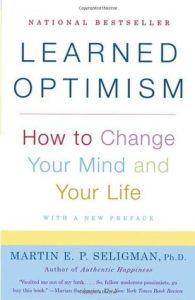
Learned Optimism (1990) by Martin E.P. Seligman explores the science of positive thinking and resilience. Seligman introduces the concept of learned helplessness and outlines strategies to cultivate an optimistic mindset. This influential book provides tools for overcoming adversity, promoting mental well-being, and fostering a more positive outlook on life.
The Blank Slate
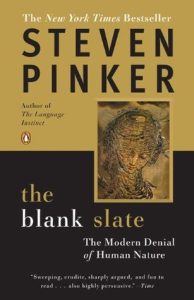
The Blank Slate (2002) by Steven Pinker challenges the notion of the mind as a blank slate. Pinker critiques the extreme views of social constructivism and advocates for an understanding of human nature rooted in evolutionary psychology and genetics. This thought-provoking book reshapes debates on nature versus nurture in shaping human behavior.
The Mind’s I
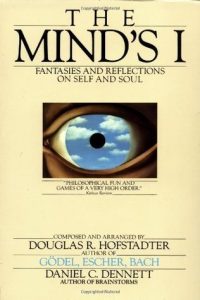
The Mind’s I (1981) by Douglas Hofstadter and Daniel C. Dennett is a philosophical exploration of the nature of consciousness. Through diverse essays and thought experiments, the book delves into the intricacies of self-awareness, identity, and the relationship between mind and body. This mind-stretching work challenges readers to ponder profound questions about the nature of existence.
Why Zebras Don’t Get Ulcers
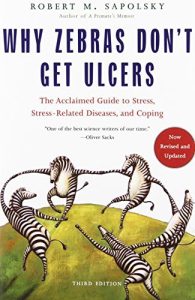
Why Zebras Don’t Get Ulcers (1994) by Robert M. Sapolsky explores the effects of stress on the human body. Sapolsky, a neuroscientist, combines humor and science to unravel the physiological impacts of chronic stress. This enlightening book offers insights into managing stress and understanding the intricate .
The Compass of Pleasure
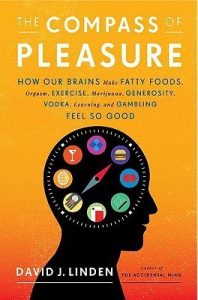
The Compass of Pleasure (2011) by David J. Linden delves into the neuroscience of pleasure and addiction. Linden explores the brain’s reward system, unraveling the biology behind cravings and satisfaction. This insightful book combines scientific rigor with accessibility, offering a fascinating journey into the neural circuits that underlie our experiences of pleasure.
The Talent Code
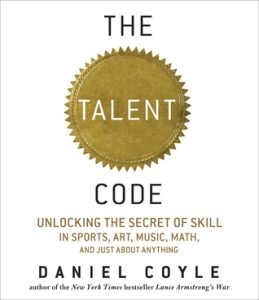
The Talent Code (2009) by Daniel Coyle explores the science of skill development. Coyle investigates ‘hotbeds’ of talent, uncovering the neurobiological processes behind expertise. Through compelling stories and research, he identifies key principles for mastering any skill. This engaging book provides valuable insights into the nature of talent and the secrets of high performance.
The Man Who Mistook His Wife for a Hat
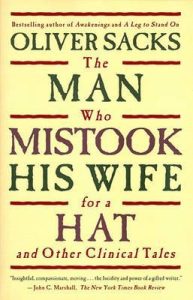
The Man Who Mistook His Wife for a Hat (1985) by Oliver Sacks is a captivating exploration of neurological anomalies. Sacks, a neurologist, recounts intriguing case studies that illuminate the complexities of the human brain. This classic work combines scientific insight with empathy, revealing the profound impact of neurological conditions on identity and perception.
The Art of Seduction
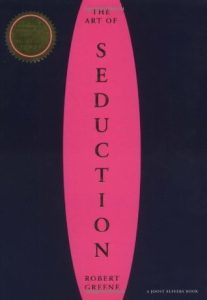
The Art of Seduction (2001) by Robert Greene is a provocative guide to the dynamics of seduction and power. Drawing from historical examples and psychological insights, Greene explores the strategies and archetypes employed in the pursuit of desire. This controversial yet engaging book offers perspectives on the intricate dance of attraction.
The article contains sponsored affiliate links from Amazon to valuable resources.


